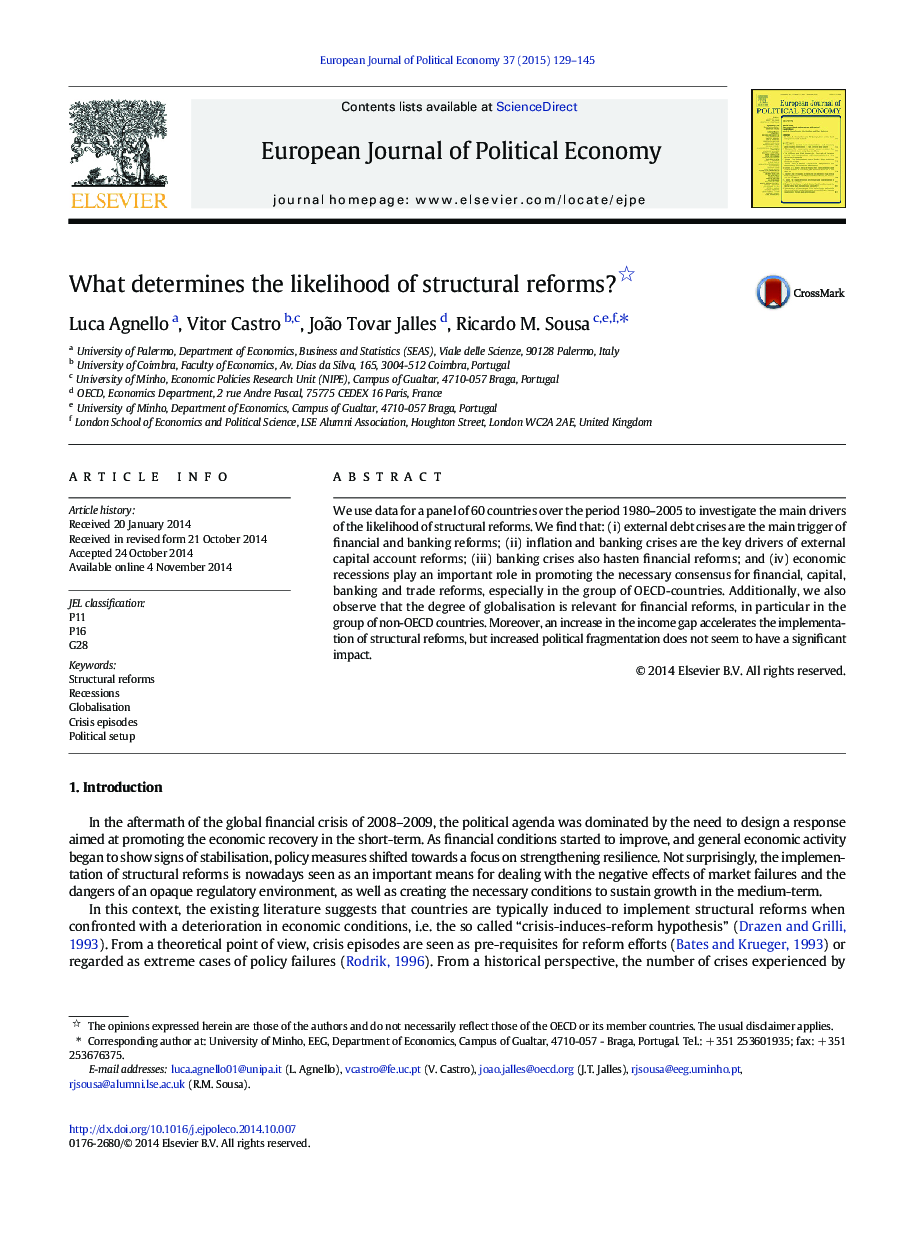| Article ID | Journal | Published Year | Pages | File Type |
|---|---|---|---|---|
| 5067969 | European Journal of Political Economy | 2015 | 17 Pages |
â¢External debt crises are the main trigger of financial and banking reforms.â¢Inflation and banking crises are key drivers of external capital account reforms.â¢Economic recessions promote reforms, especially in the group of OECD-countries.â¢Globalisation is relevant for financial reforms, especially for non-OECD countries.â¢An increase in the income gap accelerates the implementation of structural reforms.
We use data for a panel of 60 countries over the period 1980-2005 to investigate the main drivers of the likelihood of structural reforms. We find that: (i) external debt crises are the main trigger of financial and banking reforms; (ii) inflation and banking crises are the key drivers of external capital account reforms; (iii) banking crises also hasten financial reforms; and (iv) economic recessions play an important role in promoting the necessary consensus for financial, capital, banking and trade reforms, especially in the group of OECD-countries. Additionally, we also observe that the degree of globalisation is relevant for financial reforms, in particular in the group of non-OECD countries. Moreover, an increase in the income gap accelerates the implementation of structural reforms, but increased political fragmentation does not seem to have a significant impact.
